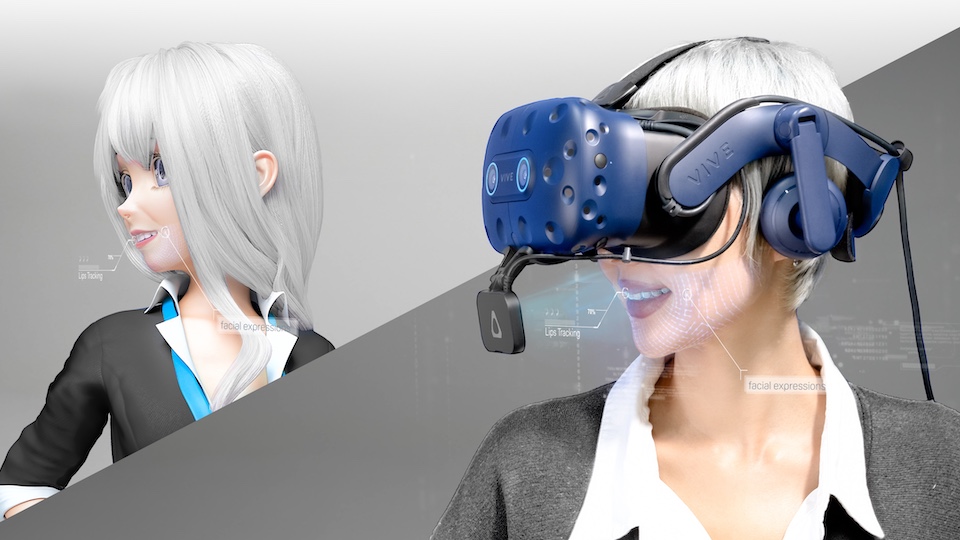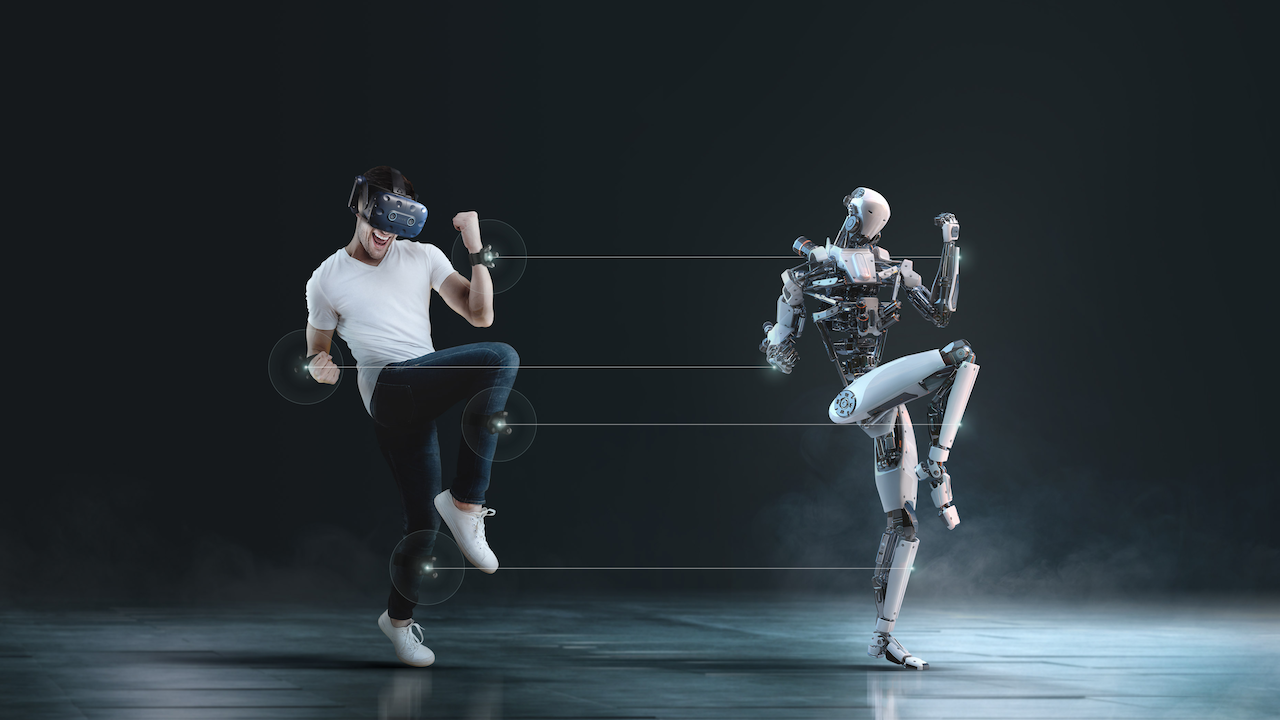HTC Vive has a new VR trick – full facial tracking
It'll require a new accessory though, with improved body tracking incoming too.

Ready to become even more immersed in your HTC Vive VR experiences? If you've got the cash to pick up two newly-announced accessories, you'll soon be able to do just that.
HTC has just revealed its brand new Vive Facial Tracker, as well as a new, third generation version of its Vive Tracker add-on.
First up, the Facial Tracker: it's capable of monitoring 38 movements across a user's lip, jaw, teeth, tongue, chin and cheeks – anything in line with and below your nose, basically. It clips onto the underside of the headset, and points at the user's face, hooking into the Vive to let developers introduce real-time facial movements onto depictions of avatars.
Making use of dual cameras, it features a 60Hz tracking rate and a low 6ms latency with an IR illuminator. That'll allow it to work even in darker environments (not to mention under the shadow of the HMD itself).
It'll be great for social-oriented games and meeting applications, and will be available from March 24 in the US for $129.99 (about £95 / AU$170 when directly converted).
Improved motion tracking
The HTC Vive Tracker isn't a brand-new device – there's already two generations of the add-on accessory out there. But this third-generation version of the gadget promises even better performance when tracking movements without using the traditional Vive 'wand' controllers.

Also available from March 24 in the US for $129.99 (about £95 / AU$170 when directly converted), the HTC Vive Tracker 3.0 is smaller, lighter and offers better battery life than its predecessors, delivering seven hours of use from a single charge.
Sign up for breaking news, reviews, opinion, top tech deals, and more.
Attaching to external objects or limbs, it offers alternative methods of interacting with VR applications, and has proved particularly popular in fitness apps that benefit from keeping hands free.
The new Vive Tracker will be fully backwards compatible with existing supporting applications, so you can grab it and get using your library of apps straight away.
It's interesting to see the divergence in strategies between HTC (which believes in an ecosystem of accessories for each use case) and Facebook (whose Oculus Quest 2 headset points to an all-in-one future). With new HTC Vive headset hardware said to be in the works, we can't wait to see what it's opposing vision of a VR future is going to look like.
- Check out our guide to the best VR headset in 2021

Gerald is Editor-in-Chief of Shortlist.com. Previously he was the Executive Editor for TechRadar, taking care of the site's home cinema, gaming, smart home, entertainment and audio output. He loves gaming, but don't expect him to play with you unless your console is hooked up to a 4K HDR screen and a 7.1 surround system. Before TechRadar, Gerald was Editor of Gizmodo UK. He was also the EIC of iMore.com, and is the author of 'Get Technology: Upgrade Your Future', published by Aurum Press.